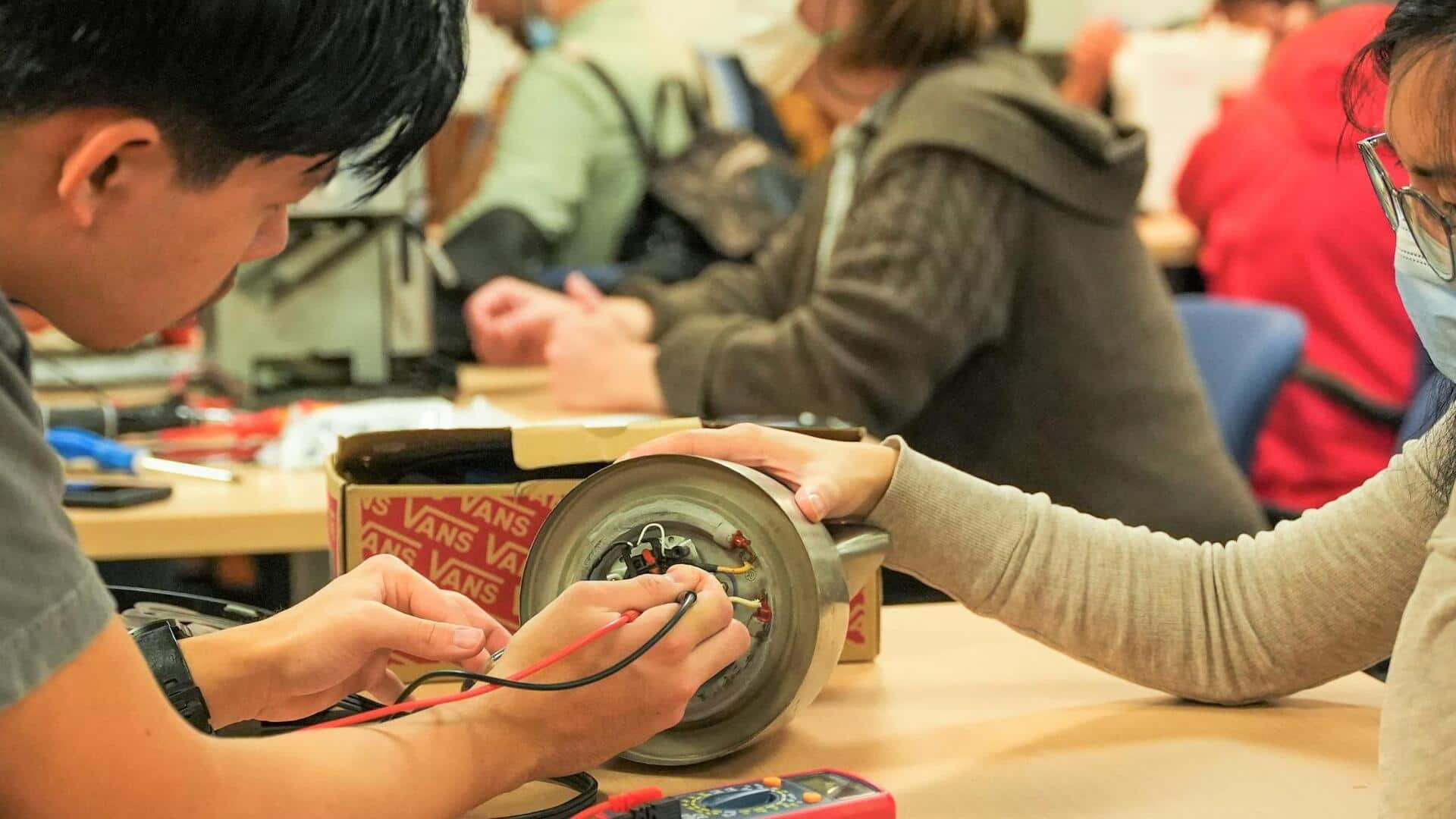
Etiquette for community repair events
What's the story
Community repair events are social gatherings focused on collectively fixing broken items, from electronics to furniture. They're a great way to promote sustainability and learn new skills from your neighbors. These events aren't just about reducing waste - they're also about building community and working together. Knowing the proper etiquette for attending a repair event can make the experience more enjoyable and productive for everyone.
Preparation
Prepare your items in advance
Before heading to a community repair event, make sure you've done your homework on the items you're bringing. This involves cleaning them up and pinpointing what's not working. If you have them, bring along manuals or any spare parts that might come in handy during the fix-up. Doing this not only shows respect for the volunteers' time and effort, but it also boosts the likelihood of a successful repair.
Respect
Respect volunteers' time and skills
The volunteers at community repair events are donating their time and skills for free. Please respect their efforts by being patient if a repair takes longer than expected, or understanding if they can't fix something. A little gratitude goes a long way! A simple thank you or sharing your positive experience can mean a lot to these dedicated volunteers.
Learning
Learn while you wait
While you're waiting or even as your item is being repaired, observe and learn from the process. Many volunteers are eager to teach you about what they're doing to fix your item or offer advice on how to maintain it to avoid future problems. Taking advantage of these educational moments not only makes your visit more valuable but also equips you with the knowledge for DIY repairs in the future.
Contribution
Share your skills if you can
If you possess handy skills or knowledge, please volunteer at a community repair event near you. From repairing items and setting up logistics to assisting with registration, every volunteer plays a crucial role in making these events happen. Your involvement not only strengthens community bonds but also helps ensure the longevity and success of these initiatives.
Follow-up
Follow up after repairs
Once your item is fixed, it's important to heed any advice given by volunteers on how to maintain the repair. If there were any specific instructions on maintaining the repair or preventing future damage, adhering to these recommendations is crucial. Plus, spreading the word about your positive experience can help attract more participants to future events, fostering their growth and success.